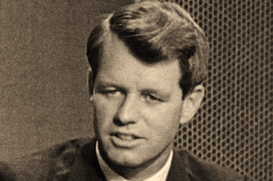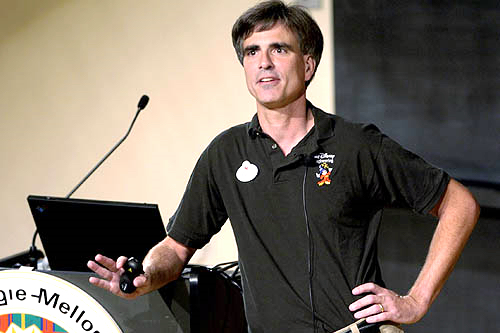If We But Know What To Do With It
|
I’m writing this essay at 5:30am in a restaurant in the Hong Kong airport. I’m emotionally and intellectually drained. I am homeward bound to the States after nearly a month in Burma/Myanmar. This was my second trip to Burma in the past four years. However, it won’t be my last. I have promised my three granddaughters, Ti Ti, Snow, and Fatty, who live near Inle Lake, that I’d be back soon. I already miss them and their parents. At an emotional level, I love the country of Burma due to the people. All countries throughout the world contain people who are willing to help and assist travelers. However, the people of Burma, for some reason, are far more interested in the strangers within their country. Some of that interest is due to their country being closed off to outsiders for the last half century. I haven’t grasped the additional reasons for their care and concern. Being closed off merely accounts to the interest in the strangers, not necessarily their willingness to assist the foreigners. Whether they are people at a hotel front desk or the person on the street, they will go out of their way to assist non-Burmese people. Their care for strangers is far beyond the pale. I’m processing why Burma is the best place that I have visited in the past half century. The willingness of Min Ko Naing to invite me to a protest rally at Sule Pagoda or a nine-year old child, Ti Ti, who wanted to play Scrabble with me adds much to my love for their country. Nonetheless, Burma is not high on the list of most American travelers. In truth, most Americans wouldn’t journey to Burma even if it were a free trip. I seriously doubt whether half of the adults could locate the country on a world map. Burma was a British colony from the mid-19th century. It was due to General Aung San in the late 40s who told the British to leave. Tragically, he was assassinated with several of his cabinet ministers by some Burmese locals. It wasn’t long before Burma slipped back into being controlled by the military. This time the Burmese military ran the country, which is where they are now. They have a parliamentary system with elected delegates, but the military has veto power over any legislation. When I attended the protest rally at Sule Pagoda four years ago, I wandered through several hundred demonstrators. I still can’t speak or understand any Burmese. Nonetheless, what I heard, in my head, was Joan Baez singing, We Shall Overcome, which was the theme song of the American civil rights movement in the 60s. My mind flipped back to protest rallies in America then to this one. Back and forth I went. It was as if I was some time-traveler journeying to a time over a half century ago but then returning to the present-day. That is the backstory. Back then and my recent trip, I had a tour guide, Moh Moh. I have mentioned in several essays that she reminded me of Bobby Kennedy, who was the most important mentor of my life. While I was in college and graduate school, Bobby was the person to whom my generation looked toward for guidance. In a seemingly serendipitous moment just prior to my trip to Burma, Chris Matthews had written his new book, Bobby Kennedy. I ordered two copies of the book—one for Moh Moh and the other for me. I glanced at a couple chapters prior to my return to Burma. However, I was finishing a semester of teaching, grading papers, and marking the finals. I didn’t have much free time to spend reading the book. Additionally, I needed to get my essays completed and ready to be posted to my website while I was overseas. Therefore, I postponed reading Bobby Kennedy until I had left Chicago on my way to Yangon. I was in the air for 20-hours plus a layover in Hong Kong for a couple of hours. I had finished most of the book by the time I arrived in Burma. However, what was surprising to me was that, while Bobby was my most important mentor, I had not known much of his personal battles that he faced in his life. While I was aware of his political life, his personal life was mostly new material. At 35,000 feet, I discovered why he was my mentor and understood why I was drawn to him. We experienced similar struggles. Reading about Bobby, I vicariously understood much of what drove Bobby and me in our lives. Interestingly, it also explained Moh Moh’s drive and care for her family, which also explains why she and I connect. 
Enter Tin Tin. I wrote about meeting the manager of SunBird Tours. While discussing what interested me in Myanmar with Tin Tin, I was struck by her interest understanding why I had returned to her country. In the middle of that conversation, it dawned on me that Tin Tin was like Moh Moh. They both shared the same drive that Bobby Kennedy did. In essence, they were incarnations of my mentor. Over the next several months there will be many essays about Bobby, Moh Moh, Tin Tin, Burma, and me. However, what seemed a serendipitous moment when Matthews’ book came out a couple months before I went to Burma, it explains my transformation, my new Weltanschauung. In Matthew’s closing paragraph, he wrote a story about John Glenn, who happened to go to Muskingum College where I went a dozen years later. Glenn was entrusted with telling Bobby’s children what had happened to their father due to his assassination. Glenn, after the children had gone to bed, went into Bobby’s study looking through his library. One book caught his eye. It was a collection of Ralph Waldo Emerson’s poems and reflection. Bobby had noted in the margin of the book these words of Emerson.
Trust me. I’m surrounded by several hundred-people having breakfast on the upper level of the Hong Kong airport waiting for flights. Here I am fighting back tears while reading that quote. I am experiencing the same revelation that I had when I watched Randy Pausch’s Last Lecture for the first time. Talk about seeing the light. It was blinding. That paragraph still echoes within me. I buy what Emerson stated. Burma is in it naissance like America was during the American Revolution, Civil War, the civil rights movement, and the present day with Donald the Dumb. Interestingly, as well as tragically, during the American Revolution less than 15% of the people were into supporting the revolution prior to the first shots being fired. Emerson ended his paragraph with this haunting sentence, “This time, like all times, is a very good one, if we but know what to do with it.” I’m concerned that many Americans are oblivious to this age of revolution. That haunts me. Hopefully, America and Burma can successfully address their problems in each country. The Times They Are A-Changin'
Visit the Best and Worst of Times page to read more about this topic.
Visit the Bobby Kennedy page to read more about this topic.
Visit the Burma Independence page to read more about this topic.
Visit the Connecting the Dots page to read more about this topic.
Visit the Dancing with Death page to read more about this topic.
Visit the My Hauntings page to read more about this topic.
Visit the On Seeing the Light page to read more about this topic.
Visit the The Last Lecture page to read more about this topic. 02/16/18 Follow @mountain_and_me |














